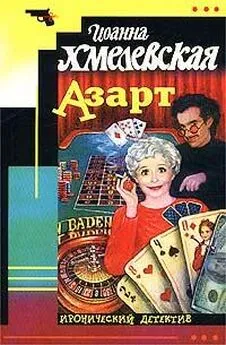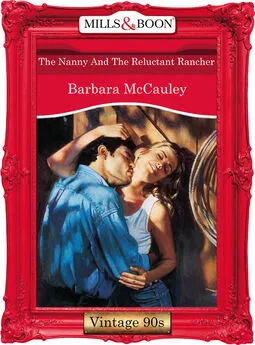Barbara Hambly - Dead water
- Название:Dead water
- Автор:
- Жанр:
- Издательство:неизвестно
- Год:неизвестен
- ISBN:нет данных
- Рейтинг:
- Избранное:Добавить в избранное
-
Отзывы:
-
Ваша оценка:
Barbara Hambly - Dead water краткое содержание
Dead water - читать онлайн бесплатно полную версию (весь текст целиком)
Интервал:
Закладка:
“Are they laying bets?” asked January with savage irony, and Rose laid a hand on his arm.
He sighed, hearing the rage in his own voice, and shook his head.
“Evidence of a trap won't help Hannibal tomorrow . . . good Heavens, this morning, I should say. . . .” Rose glanced through the window of the galley beside her, at the big box-clock that hung on the wall in the corner. “But whatever we find will strengthen our case when we get to Mayersville.”
“If we get there.” January took her hand gratefully, then scrubbed a weary palm over his unshaven face. “It feels like we've been stalled on this particular bend of the river for days.” And it felt like weeks, he thought, since he'd swum out along the shallow waters over Horsehead Bar, to be hauled up onto the Silver Moon again, battered and exhausted by his cross-country jaunt from Vicksburg. Yet it had been only Sunday, the day before yesterday.
Strange, he thought, that so little time had passed since the most complicated matter in his life had been to simply stay with the boat and watch Oliver Weems. Since the solution to the problem had been merely one of finding which trunks the stolen gold and securities were in, and proving the crime on Weems.
And now even the retrieval of the money, if it could be accomplished, began to seem like a tawdry and trivial goal compared to all the greater things he could not do. Compared to the image of the woman Mary walking back to the isolated prison of her slavery, to the thought of Julie weeping on Rose's shoulder, terrified of a fate to which she'd been betrayed . . .
Compared to the voices of the chained men along the starboard promenade, singing to keep up their spirits in the night, and the ropy cross-hatch of scars on 'Rodus's back.
And those things filled him with a helpless aching, like those dreams of trying to rescue Rose from some terrible fate. But this was the world into which he woke from dreams.
There was nothing that he could do, he knew. Not even vote for men who might change what the Founding Fathers of the United States had decreed should be.
The thought of simply taking his money—if he could find it—and using it to make himself, and Rose, and their future children as safe as he could make them, now felt to him as dirty and mean as if he were leaping into a rowboat from a sinking ship, leaving 'Rodus and Jim, Julie and Sophie, and all the rest chained on board to die.
The sense of helplessness was worse than his earlier anger, his earlier fear.
Another shot cracked out, and he cursed, thinking of Hannibal back in his cabin, patiently writing out instructions to be opened in the event of his death. Rose slid her arms around him, comforting or seeking comfort; he pressed his cheek to the soft white folds of her tignon, the scent of her, as always, dissolving the pain inside.
He couldn't do a thing to save Mary back in Mississippi, or Julie hiding in the woods along the river, or the men and women chained along the sides of the 'tween-decks fifteen feet away from him. . . . He couldn't do a thing to save Hannibal, short of murdering Molloy himself, and even that might not work. . . .
He couldn't even accomplish what he'd set out to do on the Silver Moon , namely, find where the Bank of Louisiana funds were and pin the crime on Fischer and Weems. Somewhere out there in the deepening blackness of the Mississippi woods, he thought, Baron Cemetery and the Grand Zombi and Guédé-Five-Days-Unhappy were all laughing—and down in the hold, Queen Régine was laughing, too.
And waiting.
Had the Bank of Louisiana collapsed during the course of this past week? Would Hubert Granville even be in New Orleans still, to back up January's assertions when the sheriff at Mayersville would, inevitably, write for clarification?
And what would happen if Granville had absconded as well?
To distract his mind from this question, he followed Rose over to the lantern that hung in the galley passway, where Winslow, Andy, and most of the deck-hands were clustered around Jim, gaping at the Fatal Note. A comparison under his magnifying lens showed January that the two notes, though the handwriting was disguised, had been written with the same pen, or at least with two pens cut at precisely the same angle, almost certainly by the same hand, though whether that hand had been a man's or a woman's he couldn't tell. Thucydides still could not be located to tell how the Fatal Note had come to be under the Fatal Coffee-Cup, but Eli, when asked, said he put up the tray for the pilot on the counter near the door, for either Thu or one of the lesser stewards to carry up at ten. Anyone could have gotten to it.
And given the absolute darkness that reigned once you got three steps away from the light of the passway, January supposed that even a statuesque matron could have managed it, particularly one in the inky black of full mourning.
As he climbed the steps to the boiler-deck and Hannibal's stateroom once again, January heard, along the misty blackness of the banks, the first birdsong of the early-breaking summer dawn, and his heart flinched in his chest like a beached trout dying in air.
Due to Molloy's objection to a “nigger doctor” “poking” him, January was at the last minute dropped from the shore party in favor of Mr. Quince, who claimed expertise in both the mystical healing of the long-vanished Egyptians, and the “vegetarian mathematics” of the Thompsonian system of medicine. “If you see me go down, come over to the shore if you have to swim,” said Hannibal as he put on his frayed coat and the darkest and plainest of his rather tattered collection of waistcoats.
“Is there anyone we should notify if you're badly hurt?” asked Rose tactfully, and handed the fiddler a black velvet ribbon to tie his hair.
Hannibal cocked an ironic eye back at her, knowing that she really meant “killed.” Since he'd appeared in New Orleans four and a half years ago, he had never spoken to January—or to anyone January knew—of his former life, though he was clearly a man of breeding and education. He would speak sometimes of being up at Oxford, or of the family estates in County Mayo or their town-house in London. But why he had left them, and how he had fetched up in New Orleans a penniless consumptive opium-eater with a hundred-guinea Italian violin, January could only guess. Somewhere in London, or in the English-held estates of western Ireland, there was undoubtedly a family Bible with a name that probably wasn't Hannibal Sefton, with a date of birth and also a date of death. January wondered how long ago that second date had been filled in.
“I think everyone who cares anything about me is here.” Hannibal kissed Rose's hand, then clasped January's. “And I must say you're displaying a woeful lack of confidence in my abilities at both shooting and dodging,” he added, pulling on his shabby gloves. “At least that idiot Davis didn't demand bowie-knives, though I'd have been able to hold my own with a sword, or I did back in the days when I had any wind to speak of. I shall be all right.” He looked as white as a sheet—and stone-cold sober—in the grimy glow.
January followed him down to the skiff, then made his way back to the servants' end of the promenade to watch. Even the deck-hands, and the male slaves, had paused in their work, and clustered the rail like ravens on a fence, watching the skiff pull to shore. On the hurricane deck, Roberson and Lockhart set down their rifles and turned their attention from vigilance to observation: “You'd think it was a public hanging,” muttered January as he and Rose edged their way to the rail among the other servants. The engineer's curses to trim the boat might just as well have been the whistling of the birds.
Over the past twenty-four hours the river had fallen still farther. It was going to take some tricky maneuvering to come away from the vicinity of Hitchins' Chute: the glassy brown surface was broken by a hundred splinters and daggers of black snags barely showing above the water, and by a hundred more deadly arrowheads of ripple that marked others still hidden. Davis and Gleet, rowing the skiff, had to back or push a number of times to keep the little craft from tangling itself in the floating branches, and Mr. Quince, sitting stiffly amidships with a satchel full of bandages and medicines, winced visibly every time the boat so much as rocked.
As Davis had said, there was a clear space of thirty or forty feet on the bank, perhaps twenty feet above the muddy water and ooze of the river's brim. Behind it the trees formed a misty wall, which curved inward on both ends toward the river. At the downstream end the land rose into a higher bank above the chute, where the trees grew thicker near the now-invisible water. At the upstream end a tangle of willows and cottonwoods hovered over the jumble of leafy trash that the retreating water had left. The final shadows of night seemed to linger beneath the trees.
Behind January a slave dropped an armload of wood, and Cain shouted, “You black bastard, I've seen trained donkeys at the circus less clumsy than you!”
Nervous? January wondered as Mr. Tredgold—at the bellowed command of his wife—hurried to admonish the slave-dealer for cursing in the presence of the ladies crowding the rail above. It wasn't like the imperturbable dealer to shout at his slaves.
The skiff scraped the mud bank just west of the chute, and Molloy leaped ashore, as if impatient to kill his man and be done with it and on his way. Hannibal fished a flask from his pocket, then put it back unsipped. He looked very small and thin stepping ashore among the tangle of deadfalls, jetsam, and matted leaves.
The seconds conferred for a few minutes, then loaded both Mr. Byrne's pistols and held them out to their principals to choose.
Twenty yards, when paced off, looked appallingly short.
Rose's hand closed around January's.
A raven burst, squawking, from the stand of oaks that marked the entrance to Hitchins' Chute, like a vengeful ghost in the gray dawnlight.
Davis held up his handkerchief, and let it drop. The roar of the shots ringing out together was like a cannon.
Molloy spun like a kicked rag-doll, arms flung out, blood spraying from his head. His knees buckled and he dropped.
Hannibal stood for what seemed like nearly a minute as Gleet and Davis strode to the body; Mr. Quince sat down very suddenly on the nearest deadfall tree and put his head between his knees. In the gray morning mists, the pistol still in his hand, Hannibal looked absolutely alone as he lowered the weapon, then let it slip from his fingers. He turned, and walked as shakily as a drunken man to the edge of the river, where he fell to his knees and was violently sick.

EIGHTEEN
“Get your tools, boy.” A rough hand gripped January's arm. “The man needs a real doctor, not that quack.” The next moment Jubal Cain leaned over the rail and bellowed, “Send the skiff back, damn you!” to the men on shore.
Davis pressed a hand to the chest of the man at whose side he knelt, glanced across at the obviously useless Quince, and said something to Gleet. The slave-dealer grunted a reply but went to the skiff and began to row, while Davis got to his feet and walked over to Hannibal. From the engine-room, January could hear shouting beginning—including a whoop of joy from old Winslow, who was apparently the only man with faith in Hannibal's aim or luck. Mr. Souter came running down the steps in a panic, and January heard Tredgold gabbling, “What are we going to do . . . ?”
Читать дальшеИнтервал:
Закладка:








